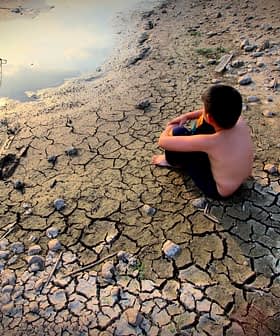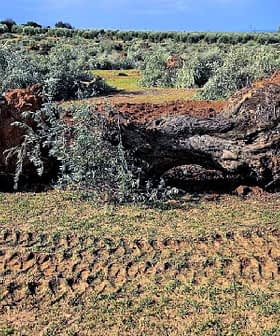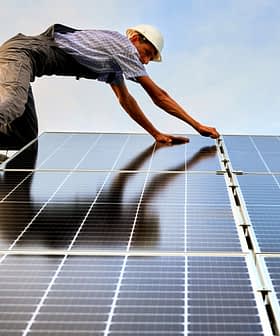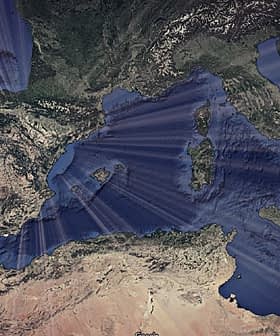Extreme Weather Cost Billions in Damage in 2021, Study Finds
Extreme weather events around the planet severely impact people and ecosystems. Now, researchers have calculated the economic costs.
A study by Christian Aid found that 10 natural catastrophes in 2021 had financial impacts of tens of billions of Euros, with Hurricane Ida and flooding in central Europe being the costliest events. The report highlighted the need for wealthy countries to reduce carbon dioxide emissions to prevent future extreme weather events and called for the creation of a fund to support those affected by climate-related disasters in developing countries.
A new study from the Christian Aid charity has found that 10 major natural catastrophes that hit the planet in 2021 each had a financial impact of tens of billions of Euros.
The study calculated the damage caused by extreme weather events, mostly in developed countries, where data from insurance claims are readily available to allow for the economic impact to be calculated. Each of the events analyzed had estimated damages exceeding €1.32 billion.
It was bitterly disappointing to leave (COP26) without a fund set up to actually help people who are suffering permanent losses from climate change.
Hurricane Ida, which claimed 95 human lives and swept most of the eastern United States, impacting cities from New Orleans to New York last August, is identified in the study as the most financially devastating event of 2021, with a total cost of around €57 billion.
July’s flooding in several central European countries was the second-largest costly weather event and took a heavy toll on human lives with 240 deaths. According to the report, the economic cost of the flooding totaled €38 billion.
See Also:La Niña Is Back, Bringing Rain and Drought for Second Straight YearThe cold wave that hit France last April and impacted olive trees, vineyards and other crops is also included in the list of the costliest disasters of 2021, having incurred financial damage of €4.94 billion to French farmers.
Although extreme weather events were not directly correlated with climate change in the report, the increasingly warm weather of the planet could increase the likelihood of severe events, the authors of the report said.
“A study by World Weather Attribution concluded that climate change made extreme rainfall events similar to those that led to the floods in Germany, Belgium, the Netherlands and Luxembourg between 1.2 and nine-times more likely to happen, and that such downpours in the region are now three to 19-percent heavier because of human-caused warming,” the authors wrote.
The study also documented other extreme weather events of 2021 with a vague economic impact but a profound consequence on people and ecosystems. These included flooding in South Sudan, which forced more than 800,000 people to relocate, and the tropical cyclone Tauktae, which affected more than 200,000 people in India, Sri Lanka and the Maldives.
“That’s a huge human impact,” said Kat Kramer, the leading report author. “Obviously, losing your home, your livelihoods and everything, and not having the resources to rebuild, that is incredibly tough. Whereas at least if you have insurance, you have some mechanism for building that back.”
The report called on wealthy countries to drastically reduce carbon dioxide emissions to prevent future extreme weather events from becoming a reality.
Furthermore, the charity has summoned world leaders to create the means to support people hit by climate-related events in developing countries financially.
“Although it was good to see the issue of loss and damage become a major issue at COP26, it was bitterly disappointing to leave without a fund set up to actually help people who are suffering permanent losses from climate change,” said Nushrat Chowdhury, Christian Aid’s climate justice adviser in Bangladesh.
“Bringing that fund to life needs to be a global priority in 2022,” he concluded.









